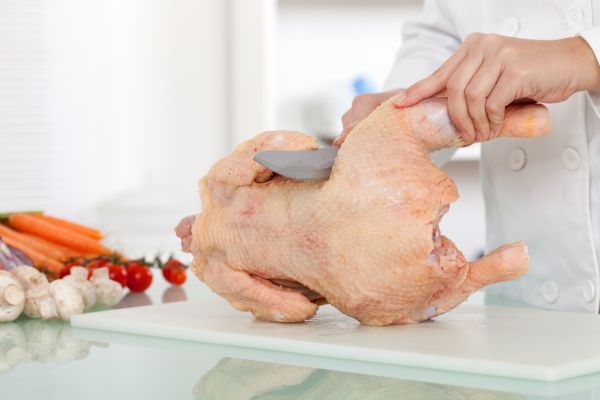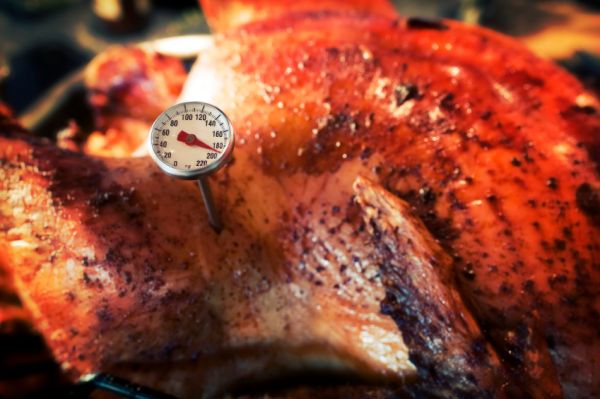Whether you’re cooking a simple meal for yourself, or preparing a delicious dish for family and friends, it’s important to follow safe food handling practices.
When it comes to food poisoning, chicken and other poultry products (like goose, duck, quail and turkey) carry some of the greatest risks. Salmonella and Campylobacter are two of the most common bacterial contaminants found in poultry. Even in small amounts, these bacteria can make you sick.
These bacteria can contaminate poultry during its initial processing, and survive on the meat right up until cooking. Bacteria can also be spread to other foods through cross-contamination (e.g. using the same cutting board to prepare raw chicken and fresh salad items). To reduce your risk of food borne illness, there are a number of preventative measures you can take from the time of purchase, right through to cooking and consumption.
Staying safe
Buying poultry
At the supermarket, pick up poultry and other perishable items last. Check the packaging for any damage and don’t buy it if it’s open, torn or broken in any way. Pack your poultry into insulated bags to keep it cold, and separate your poultry from ready to eat foods. Be sure to take your poultry straight home and refrigerate or freeze it immediately.
Storage
Keep poultry items stored below 5°C to stop bacteria from multiplying. Raw poultry should be stored at the bottom of the fridge and sealed tightly to prevent any juices from leaking out. Discard any poultry that has passed its use by date.
If you plan to freeze poultry, it’s best to do this immediately after purchase. Do not freeze raw chicken or poultry that are not entirely fresh. The freezer temperature should be below -20°C.
Preparing Poultry
Chicken and poultry meat, including whole carcasses, should not be washed before cooking. This will only spread bacteria across your kitchen.
Ensure frozen poultry is thawed safely in the refrigerator, not on the kitchen counter. Marinated chicken or other poultry should be kept in the fridge up until cooking.
When preparing poultry, ensure you wash your hands, kitchen work surfaces, chopping boards and utensils thoroughly and regularly with hot and soapy water. Never use the same surfaces or utensils to handle raw and cooked poultry, or other ready to eat foods. If you are stuffing a carcass (e.g. chicken or turkey), then you are touching raw poultry during this process, so be sure to discard any leftover stuffing and do not consume. And be sure to wash your hands after handling raw poultry (not just before).

Cooking
It is not advised to eat raw or ‘rare’ poultry. Poultry meat should be cooked all the way through, with no pink at all. Use a meat thermometer to check the centre of the meat and ensure it has reached at least 75°C. This is the temperature at which bacteria are destroyed.

By following these food safety tips, you can reduce your risk of contracting food poisoning and instead enjoy the delicious flavours of your favourite poultry dish!
